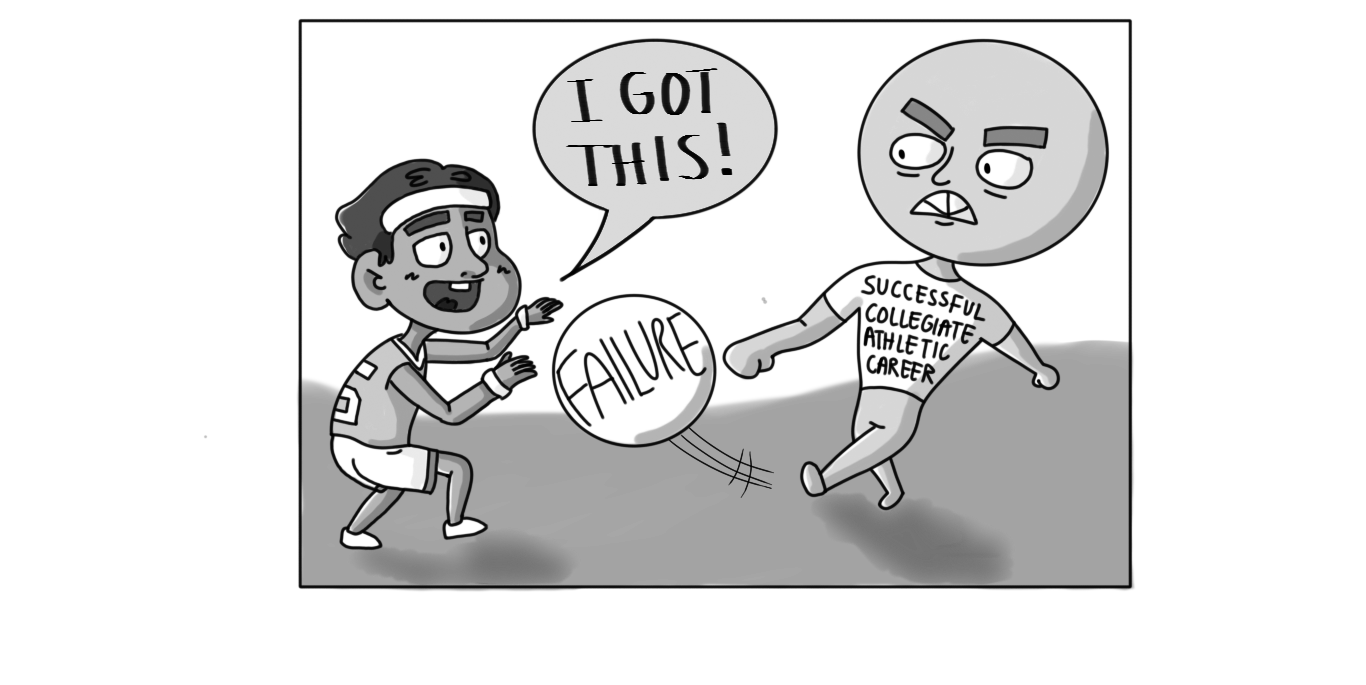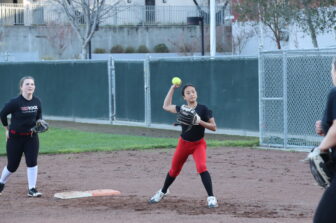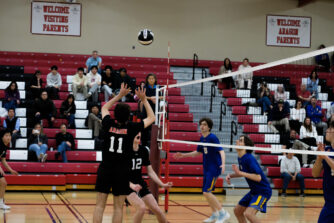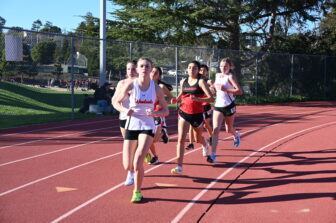
Many aspire to continue their athletic careers in college. College athletes get to compete against more talented players with larger audiences than they’ve ever had before and sometimes even get their games broadcasted on national television. But, according to the National Collegiate Athletic Association, only about 7.14 percent of high school athletes continue their career in college. So, what is it like being in that seven percent?
“Busy,” said Aragon alumni and current soccer midfielder for the University of Arizona, Zoe Barrie. “It’s really hard to sometimes find time to just breathe because every minute of the day is jam packed with something.”
According to the NCAA, division one athletes spend on average about 24 percent of their time doing athletic activities compared to 25 percent of their time completing academic activities. Collegiate student athletes must achieve a balance between academics and athletics that allow them to find success in both. To do this, there are many important qualities student athletes must learn such as time management, flexibility, planning and adaptability.
“I use a planner,” Barrie said. “I make sure to map out my entire semester using the syllabi my professors give me. Once I have an idea of how my semester looks, I then go one day at a time in balancing everything out.”
Planning things out by semester or quarter can be very helpful, but that’s not the only way to try and bear the weight of balancing school and sports.
“I definitely make my class schedule a little lighter in season, and take more classes in the off-season in order to maintain a good balance and not overload myself,” said Aragon alumni and current libero and defensive specialist for the Massachusetts Institute of Technology’s volleyball team, Maddie Lee.
Time management skills are absolutely necessary as a college athlete, but it can sometimes take a long time to master these skills. Therefore, it’s important to start building these skills as a high school or even middle school athlete.
“I will say that I think having a rigorous schedule all of high school with having to balance school, cross country/track, additional weight lifting, soccer and a social life was absolutely necessary in setting me up as a D1 athlete,” Barrie said. “The extreme schedule we have as athletes in college wasn’t a big shock to me because of how I handled my schedule in high school.”
Preparation is key to being a student athlete in college. But often times, being adaptable is even more vital. Some athletes get their positions changed once they start playing at the collegiate level and that can be a big shock. But, the most successful college athletes are the ones who adapt to the new situations thrown at them and try to stay positive through that process.
“Know that it will most likely not go the way you think it will go as a student athlete,” Barrie said. “Being adaptable and remaining positive despite the situation is key in getting through all four years. The people I’ve seen who have burned out during their four years had a hard time finding the silver lining in their situation and didn’t know how to adapt and deal with the tough things that came their way.”
However, even as a highly adaptable athlete, that doesn’t mean things will be easy. Being a college athlete and representing the school and sometimes the state is a tough burden.
“My time as an athlete at Arizona has been the hardest thing I’ve had to do my entire life,” Barrie said. “I came in with ‘rose-colored lenses’ expecting it to be a walk in the park. Finding out that it was by no means anything I had expected it to be was a tough pill to swallow.”
Being a college athlete comes with mental struggles as well as physical. And those mentalities can impact an athlete’s performance if they’re not cared to.
“I think the hardest thing for me was being confident in my own skills, and recognizing that I deserve to be there,” Lee said. “For many college freshmen in sports, we are worried that everyone else is better than us, especially the upperclassmen. In reality, everyone wants you to succeed and play your best, so it’s important to go in confident in your own abilities and ready to learn.”
Getting to the point of being a college athlete is immensely difficult as well. It takes a lot of hard work, determination, sacrifice, motivation and resilience to get to the level needed to be able to compete at a college level.
“I had to sacrifice a lot for soccer, while growing up,” Barrie said. “I started playing at 4 years old and joined a club team at 8. I then played on that team until I got to college.We went internationally to Spain and then traveled all over the U.S. In doing that, I had to miss a lot of birthday parties, social gatherings, school, etcetera.”
But, despite all of the things athletes have to give up during their journey to college, the memories made on the team and the lessons learned, can all be worth it.
“The first [memory] that comes to mind is scoring the game-winning goal versus GCU in the spring of 2017,” Barrie said. “… I think [being a college athlete] has completely transformed me into a better version of myself. I found who I was as a person and a student, which is definitely more important in the aspect of life.”
Being a college athlete gives you inspiration and perspective while letting you represent something bigger than yourself; your college or university.
“I love being on the team because my teammates are some of my biggest inspirations, they’re so driven and selfless,” Lee said. “Getting to be on a team with people who are dedicated not only to their sport but also to their academics, career, and relationships has helped shape my priorities and values. It’s also super rewarding to be a part of something to represent my school and community to other colleges.”



